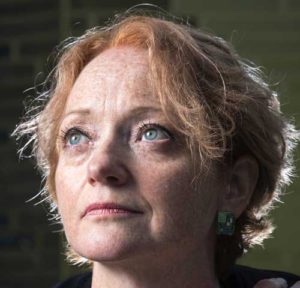
Fred Taggart, honorary secretary of the Brixton Advice Centre on Railton Road for 25 years, was awarded an MBE in the Queen’s birthday honours list for services to regeneration and charity.
“When I first got involved with Brixton Advice Centre in 1986,” he says, “we were in rented offices in what is now just a part of our current premises and we employed two advisors only.
“I led the fundraising to acquire the building with Brixton City Challenge grants and other charitable donations.
“When the offices next door became vacant, when Race Today magazine closed and CLR James, who lived in the upstairs flat, died, I led negotiations with Lambeth council, to buy the premises.
“We raised over £100k to buy the building and then a further £300k to knock the two buildings into one and refurbish them to give us the premises we enjoy today.
“The centre now employs 12 staff, including barristers, solicitors and professional advisers. We help over 6,000 clients each year. I have served for about 25 years as honorary secretary.
“I persuaded English Heritage to erect the blue plaque on the building to mark the residence of CLR James – incidentally, the first blue plaque to a black man in Lambeth. The centre is a vital part of Brixton and Herne Hill life.
“I take it as an unexpected honour for I never did any of this work with the expectation of anything but criticism (this being Lambeth).
“It reflects well on the standing of the centre that our contribution to Lambeth is recognised through this honour to me.”
Fred was also a trustee of South London Family Housing Association for 15 years, including three as chair. The association, now merged into a larger one, had several hundred homes in Lambeth.
He served as a Lambeth councillor between 1986 and 1990, including two years as chair of its housing committee.
He held several voluntary posts in education, including chair of the governing bodies of Dick Sheppard comprehensive school in Tulse Hill, which closed in 1994, and of Willowfield School (now The Michael Tippett) in Herne Hill and vice chair Jessop Junior School, Herne Hill.
He was also a governor of Brixton College and South London College (now amalgamated into Lambeth College).
As well as his work in Lambeth, Fred, originally from Ireland, is a trustee of Harvey’s Foundry Trust, in Hayle near St Ives in Cornwall, a community-led heritage regeneration project, and vice-president of the Arkwright Society, Derbyshire, which runs Cromford Mill, part of the Derwent Valley World Heritage site.
He was projects director of The Prince’s Regeneration Trust until he retired about four years ago, where he was responsible for advising and supporting community groups to develop and deliver proposals for the re-use of historic buildings.
Before that he had worked as head of policy for Southwark council and assistant chief executive, strategic planning and regeneration, for Hackney council.

In one of life’s little ironies, another local notable, author Stella Duffy, was awarded an OBE in the same honours list.
She, and other campaigners against Lambeth council’s plans for its libraries, have been strongly critical (this being Lambeth) of the Carnegie Herne Hill Trust, of which Fred Taggart is a member.
It has plans to run the Carnegie library in Herne Hill – now closed for conversion to a “healthy living centre” run by the council leisure provider, GLL – as a centre for lifelong learning with a sustainable income and has received backing from Lambeth council.
Stella Duffy, apart from a successful career as a writer, is active in the local community. Many Fun Palaces (an organisation she runs) happen across the world each year in October, including at Brockwell Lido and in Lambeth libraries.
She has written 14 novels, more than 50 short stories and ten plays.
The Room of Lost Things – inspired by a Lougborough Junction dry cleaners – and State of Happiness were both long-listed for the Orange Prize.
The Room of Lost Things won Stonewall Writer of the Year 2008, Theodora won Stonewall Writer of the Year 2010. She won the 2002 Crime Writers Association Short Story Dagger for Martha Grace, and again in 2013 for Come Away With Me.
Her fourteenth novel London Lies Beneath will be published by Virago in October 2016.
Her plays include The Book of Ruth (and Naomi) (Bush Theatre); The Wedding (Manchester Royal Exchange), Medea (The Scoop & Assembly Rooms, Edinburgh); Prime Resident (NYT, Soho Theatre); and Immaculate Conceit (Lyric Hammersmith).
She established Fun Palaces in 2013, inspired by theatre director Joan Littlewood (Oh! What a Lovely War) and architect Cedric Price’s never-built vision for a Fun Palace.
Their plan for the palace was: “Choose what you want to do – or watch someone else doing it. Learn how to handle tools, paint, babies, machinery, or just listen to your favourite tune.
“Dance, talk or be lifted up to where you can see how other people make things work. Sit out over space with a drink and tune in to what’s happening elsewhere in the city. Try starting a riot or beginning a painting – or just lie back and stare at the sky.”
Initially conceived as a one-off weekend celebration for Joan Littlewood’s centenary, Stella’s idea became a year-round campaign, championing community-led arts, science and cultural engagement for all.
This year’s worldwide weekend celebration will take place on 1 and 2 October 2016.
The part-time Fun Palaces team of four, based at the Albany, Deptford, facilitate thousands of volunteer makers to create Fun Palaces for local communities.
Over October weekends in 2014 and 2015 there were 280 Fun Palaces created by more than 5,000 Fun Palace makers across 11 nations, with 90,000 people taking part.
Stella has worked in theatre for 30 years, mostly in improvised and physical theatre.
She is a patron of Diversity Role Models which works to end bullying of LGBTQ young people. A prominent supporter of Stonewall, she has hosted its annual fundraising dinner for the past four years.
She has had breast cancer twice, at the age of 36 and again at 50, and has spoken for Breast Cancer Care and Modern Amazons about young women with breast cancer and written for many publications about the impact of disease on daily life.
She is on the steering group and a founding member of the Women’s Equality Party.
“I have worked in theatre and as a writer for more than 30 years, she says, ”always with the hope that our work in the arts can be of value to all and make a difference.
“Fun Palaces was born of my mounting frustration at the continued lip service paid to full cultural engagement – an engagement where everyone is truly welcome to participate, as creators, not just audiences.
“I hope that this unexpected honour will help us push open some doors, have vital conversations, make the difference we need.
“The change we believe in, the empowered and active citizens who are Joan Littlewood’s ‘everyone an artist and everyone a scientist’, is needed now more than ever before.”
Stella was born in Woolwich in 1963, the youngest of seven children.
Her mother grew up in Kennington and met her father when he came to the UK with the New Zealand RAF during WW2.
Her family moved to New Zealand when she was five years old. She studied English literature and drama at Victoria University of Wellington.
She returned to the UK in 1986. She now lives in Loughborough Junction and is married to the writer Shelley Silas.

















